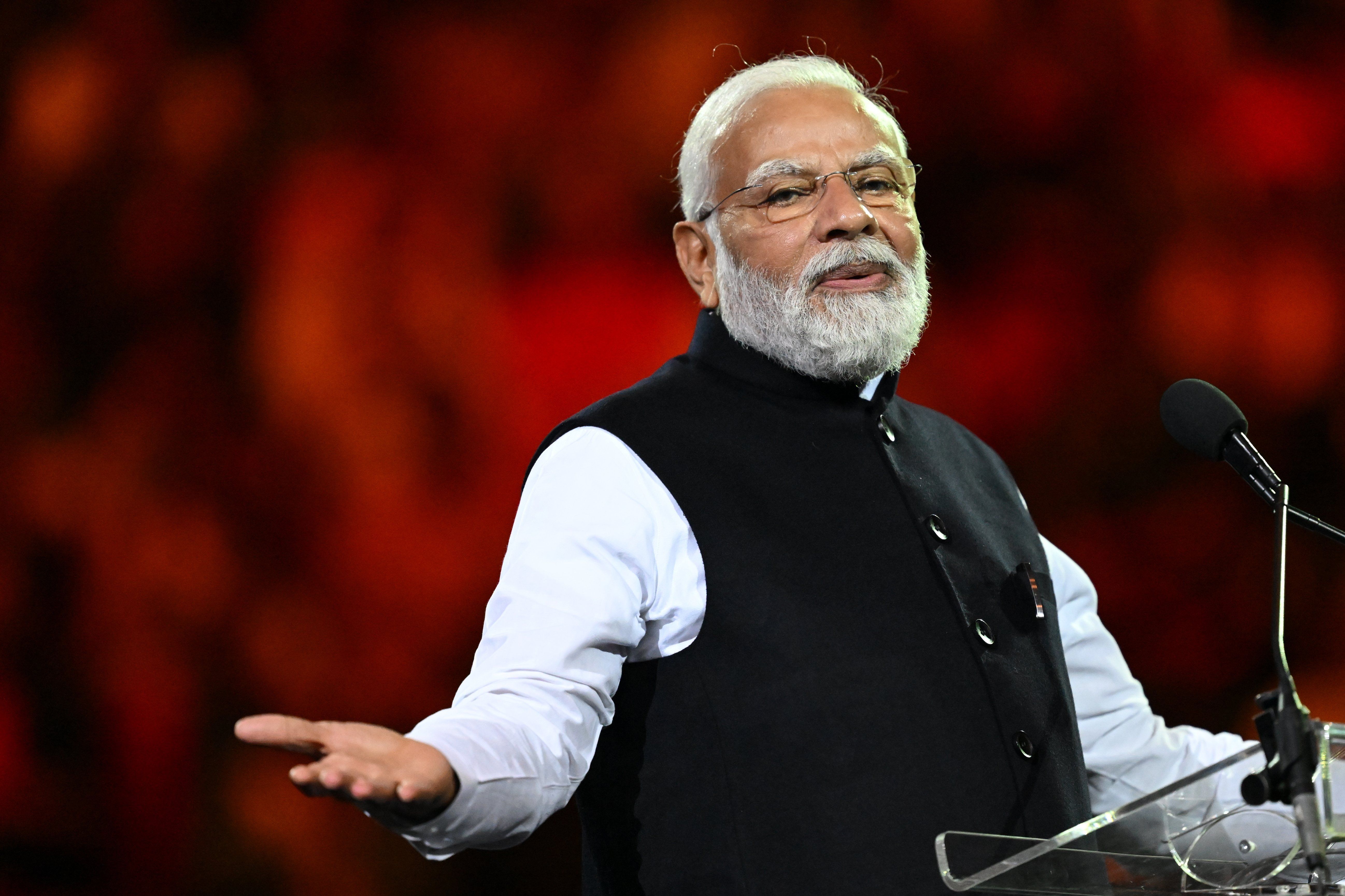Modi is on the moon. Modi is getting wined and dined in DC. Modi is hosting the G20 Summit in September. Modi’s economy is booming. Apart from the ethnic violence in Manipur, India’s Prime Minister Narendra Modi is on fire this summer, and yesterday his country reached new heights.
India’s Chandrayaan-3 spacecraft successfully landed on the moon, making it the fourth nation to join the lunar landing club and the very first to make it to the moon’s south pole. The mission’s success furthers Modi’s dreams of making India an irrefutable economic, diplomatic, and technological world power.
But watch out SpaceX – even though Modi met with Elon Musk this summer, India aims to become the global leader in space exploration, and Modi is capitalising on his amicable relationship with Russia, China, and the US to do it. At the BRICS summit, for example, he pitched members on a consortium for space exploration. The idea comes on the heels of Russia’s failed moon landing this week and Modi signing on to the US-led Artemis Accords for space exploration in June, continuing his balancing act between the US and its global adversaries. India is also planning to partner with Japan’s space program.
Modi’s government wants India to harness the private sector’s entrepreneurial energy to put more satellites and investment into space faster. India’s private space industry – which is largely focused on geopolitically important low Earth orbit satellites – is worth $6 billion, a figure that is expected to triple by 2025.
The Indian leader will end his “hot Modi summer” by hosting the G20 summit in New Delhi in September, where he will welcome President Joe Biden and possibly – he’s RSVP’d as a “maybe” – Russian President Vladimir Putin.
A warrant for Putin’s arrest from the International Criminal Court made him skip attending the BRICS summit in person this week, but India is not party to the ICC. Modi is in a singular position to achieve a diplomatic coup by hosting Biden and Putin in their closest proximity since the war started. Putin has not ruled out attending in person, but the notion of him and Biden sharing a space anytime soon feels a bit … pie in the sky.
